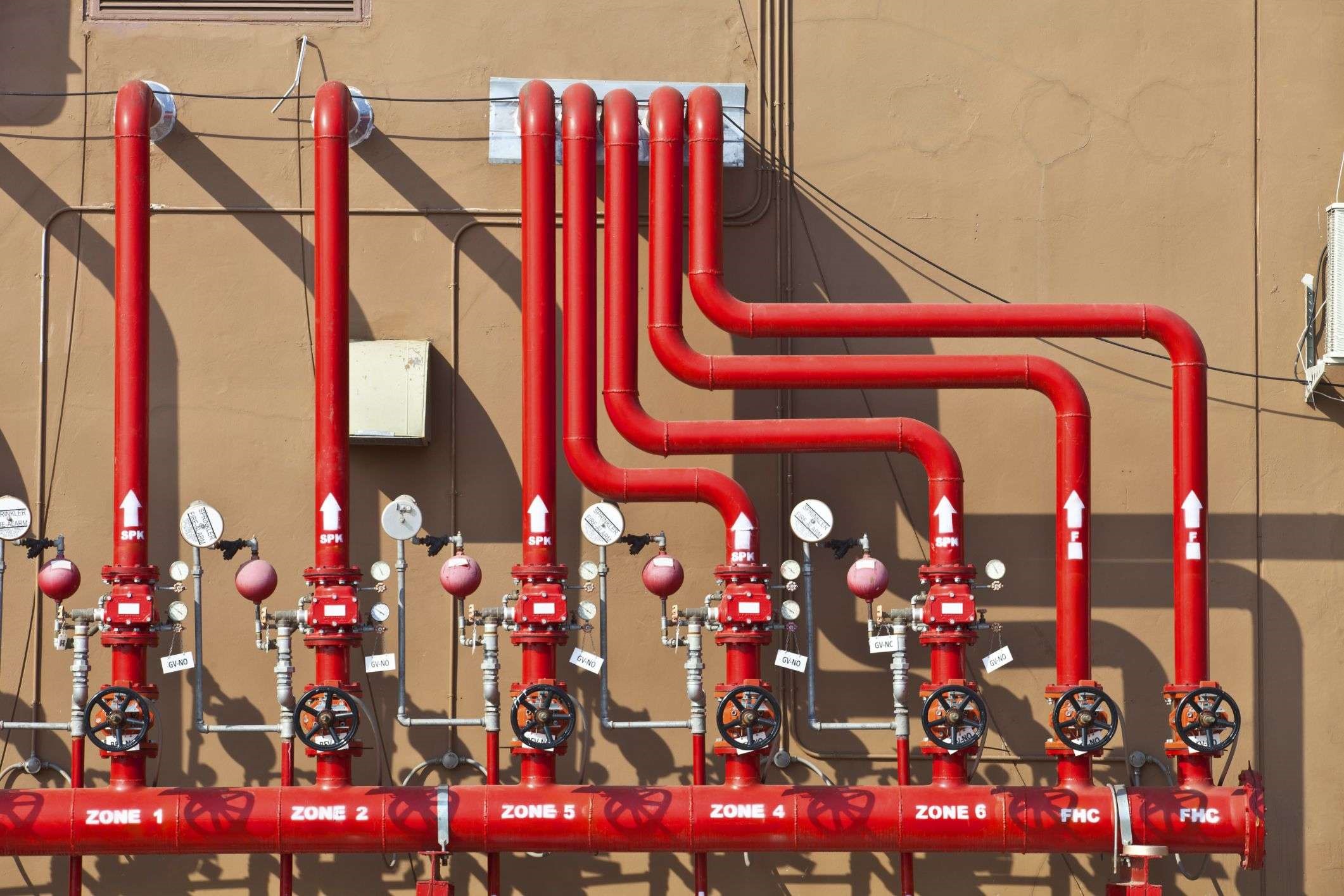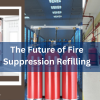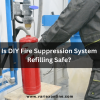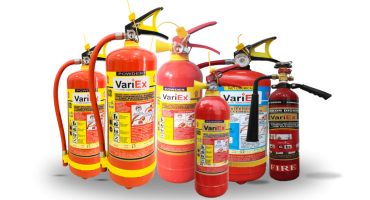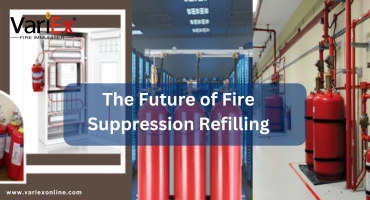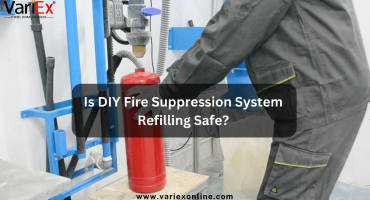![]()
Fire Immuniser
+91-7829629111
Email: info@variex.in
Varistor Technologies Pvt. Ltd.
Block-1, First Floor, Ardente Office One, Hoodi Circle, ITPL Main Road, Bengaluru, Karnataka 560048, IN
What Is Sprinkler System In Fire Fighting
In the realm of fire safety, sprinkler systems stand as a cornerstone of defense against the devastating effects of fires. These systems play a crucial role in swiftly detecting, containing, and extinguishing fires, thereby safeguarding lives and property. This article delves into the intricacies of sprinkler systems in fire fighting, exploring their components, functionality, and importance.
Components of Sprinkler Systems:
Sprinkler systems comprise several essential components, each contributing to their effectiveness in fire suppression:
- Piping: A network of pipes distributes water throughout the building, delivering it to sprinkler heads in case of a fire.
- Sprinkler Heads: These devices are strategically placed on the ceiling or walls and are designed to discharge water when exposed to heat.
- Control Valve: The control valve regulates water flow within the sprinkler system and is typically activated automatically when a fire is detected.
- Alarm System: An alarm system alerts occupants and authorities when the sprinkler system is activated, signaling the presence of a fire.
- Water Supply: Adequate water supply, either from a dedicated fire pump or the municipal water system, is essential for the proper functioning of sprinkler systems.
Functionality of Sprinkler Systems: Sprinkler systems operate on a simple yet effective principle: when a fire occurs, the heat rises and activates the sprinkler heads closest to the source of the fire. Each sprinkler head is individually activated, releasing water onto the fire below. Contrary to popular belief, sprinkler systems do not activate all sprinkler heads simultaneously unless the fire is widespread. Instead, only the sprinkler heads directly affected by the heat are triggered, minimizing water damage and conserving water.
Importance of Sprinkler Systems in Fire Fighting:
The significance of sprinkler systems in fire fighting cannot be overstated. Here are several reasons why these systems are indispensable:
- Rapid Response: Sprinkler systems provide an immediate response to fires, often extinguishing them before they have a chance to spread or escalate.
- Life Safety: By suppressing fires quickly, sprinkler systems create a safer environment for occupants, allowing them more time to evacuate the building safely.
- Property Protection: Sprinkler systems help minimize property damage by containing fires to their area of origin, reducing the overall impact on buildings and belongings.
- Cost-Effective: Despite the initial investment, sprinkler systems offer long-term cost savings by preventing extensive fire damage and reducing insurance premiums.
- Code Compliance: Many building codes and regulations mandate the installation of sprinkler systems in commercial and residential properties to ensure compliance with fire safety standards.
Conclusion:
Sprinkler systems are integral to fire safety, providing a reliable and effective means of extinguishing fires and protecting lives and property. With their rapid response capabilities and proven track record, sprinkler systems continue to be a cornerstone of fire fighting efforts, contributing significantly to overall fire safety measures in buildings and structures.
Frequently Asked Questions
What is a sprinkler system in fire fighting?
A sprinkler system in fire fighting is a network of pipes and sprinkler heads installed in buildings to automatically detect and suppress fires by releasing water when heat is detected.
How do sprinkler systems work?
Sprinkler systems work by having sprinkler heads positioned throughout a building. When heat from a fire activates a sprinkler head, it opens, allowing water to flow and extinguish or control the fire.
Are sprinkler systems effective in extinguishing fires?
Yes, sprinkler systems are highly effective in extinguishing fires. They can rapidly respond to fires, often suppressing them before they have a chance to spread, minimizing damage and protecting lives.
Do all sprinkler heads activate at once during a fire?
No, contrary to popular belief, not all sprinkler heads activate simultaneously during a fire. Only the sprinkler heads closest to the heat source are activated, conserving water and minimizing water damage.
Are sprinkler systems required by law?
In many jurisdictions, sprinkler systems are required by building codes and regulations for certain types of buildings, such as commercial, industrial, and residential properties, to ensure compliance with fire safety standards.
How often should sprinkler systems be inspected and maintained?
Sprinkler systems should be inspected and maintained regularly to ensure they are in proper working condition. The frequency of inspections and maintenance varies depending on local regulations and manufacturer recommendations but is typically done annually.
Can sprinkler systems cause water damage to property?
While sprinkler systems may cause water damage, especially during activation, they are designed to minimize damage by quickly suppressing fires. Proper design, installation, and maintenance can help mitigate water damage risks.
Do sprinkler systems require electricity to operate?
Sprinkler systems can operate without electricity in most cases. They are typically activated by heat, not electricity, making them reliable even during power outages.
Can sprinkler systems be installed in all types of buildings?
Sprinkler systems can be installed in various types of buildings, including commercial, industrial, residential, and institutional properties. However, the specific requirements and design considerations may vary based on the building's occupancy and use.
Do sprinkler systems need to be connected to a water supply?
Yes, sprinkler systems require a reliable water supply, either from a dedicated fire pump or the municipal water system, to ensure they have an adequate water source for fire suppression.
Final Say
We at VariEx.in or Variexonline.com have mastered the art of designing, installing, inspecting, and fixing automatic sprinkler systems with the help of our in-house team, which is capable of delivering the fire sprinkler services you need, whether large or small and at affordable cost.
To schedule a fire sprinkler installation, or you think our services could benefit your commercial property, contact us online or give us a call at, 7829629111


